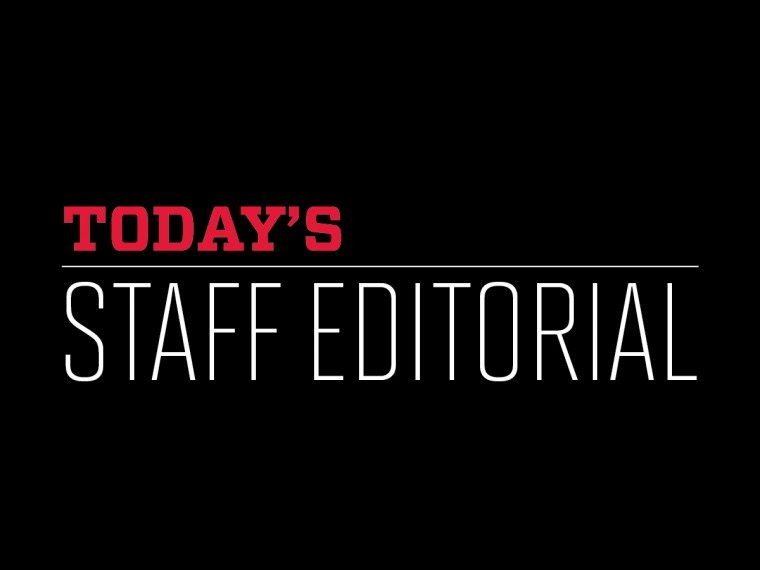
Today’s Staff Editorial
Memories of elementary and middle school are distant and fuzzy for most of us. But Sept. 11, 2001 was an exception.
We all have a story. Your mom was supposed to be in the World Trade Center. Your dad happened to leave his meeting in the Pentagon early. Your aunt in New York called in sick that day. You were pulled out of elementary school, and for the first time, you really watched the news. For others, it may be a different, sadder story.
One way or another, each and every one of us was forever changed by Sept. 11.
Most students were young when this country was devastated by the terrorist attacks. We were old enough to get the basics, but not mature enough to understand the gravity of what happened.
Vice President Joe Biden said in a campaign speech Sunday, “This is going to go down, when we record this 9/11 generation, as the second greatest generation in the history of this country.”
We’re the 9/11 generation. While it’s not exactly clear why Biden decided this would be the second greatest generation, it’s funny to think back on how that one day defines us. The day we vividly remember has caused an outpouring of security and foreign affairs reactions — the concept was new to our parents, but a world with such heightened precautions has become the norm for us. Going through extensive airport security is a given, so we account for extra travel time. The most conspicuous aspect of the New York City skyline is the lack of the twin towers. And we’ve grown up in this country while it was in the midst of two wars — many of us have brothers, sisters, cousins and friends who have died fighting in Iraq and Afghanistan.
When President Obama came on TV in May to announce Osama bin Laden, America’s most wanted, was dead, it was college-aged students who lined the streets in celebration. No, we didn’t think all of our problems were solved because one man was dead. But when the man who had so greatly impacted our childhoods met his end, it was more symbolic than anything else. The man who helped mobilize the attacks and brought national security to the forefront of everyone’s mind was gone. That, too, has helped shape us.
We’re a generation that has grown up in fear of attack, not unlike the World War II generation Biden spoke of. The attack on American soil on 9/11 forced us to expand our knowledge beyond the country’s borders and, for many of us, learn to practice acceptance and not give in to stereotypes.
Most of us probably heard about the attacks through TV reports or school announcements. But technology has changed how we’ve responded and united through tragedy. Since 2001, we’ve become hyper-aware of any catastrophic national and world event. We followed everything from the Arab Spring to the Aurora, Colo., mass shooting on Twitter, hoping to constantly stay in the know. We know what’s going on all around the world because we have to — and if we don’t, we run the risk of hearing about tragedy too late. But we’re better for it.
The greatest generation was defined by its willingness to fight in World War II even after growing up in the midst of the Great Depression. Sept. 11 brought about strong feelings of nationalism and patriotism, but the question remains as to how those feelings will be channeled to better today’s society — something we should all consider as we remember the 11th anniversary of the attacks. Hopefully, the 9/11 generation — the generation Biden so strongly believes in — can use that unforgettable day to protect the country, improve foreign relations and keep this nation on top in such a competitive world. After all, this generation is the future of America.



